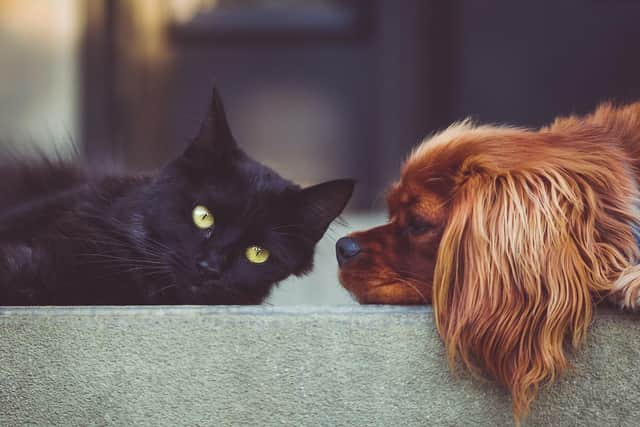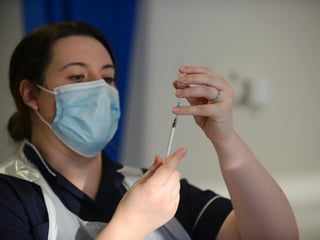Pets could need Covid jabs to help stop the spread of virus according to scientists
and live on Freeview channel 276
Coronavirus can infect a wide range of species including cats, dogs, mink and other domesticated species according to experts from the University of East Anglia (UEA), Norwich-based research facility the Earlham Institute and the University of Minnesota.
In the journal Virulence, they have said continued evolution of the virus in animals followed by transmission to humans “poses a significant long-term risk to public health”.


Advertisement
Hide AdAdvertisement
Hide Ad“It is not unthinkable that vaccination of some domesticated animal species might be necessary to curb the spread of the infection,” they said.
Last year, Denmark’s government culled millions of mink after it emerged that hundreds of Covid-19 cases in the country were linked with coronavirus variants associated with farmed mink.
One of the editorial’s authors, Cock van Oosterhout, professor of evolutionary genetics at UEA, said dogs and cats can contract coronavirus but that there are no known cases in which there has been spillback to humans.
“It makes sense to develop vaccines for pets, for domestic animals, just as a precaution to reduce this risk,” he said.
Advertisement
Hide AdAdvertisement
Hide Ad“What we need to be as a human society, we really need to be prepared for any eventuality when it comes to Covid.
“I think the best way to do this is indeed consider development of vaccines for animals as well.
“Interestingly the Russians have already started to develop a vaccine for pets, which there’s very little information about.”
Kevin Tyler, editor-in-chief of Virulence, said: “Cats are asymptomatic but they are infected by it and they can infect humans with it.
Advertisement
Hide AdAdvertisement
Hide Ad“The risk is that, as long as there are these reservoirs, that it starts to pass, as it did in the mink, from animal to animal, and then starts to evolve animal-specific strains, but then they spill back into the human population and you end up essentially with a new virus which is related, which causes the whole thing all over again.”
He said while mink were culled in Denmark, “if you were thinking about domestic animals, companion animals, then you might think about whether you could vaccinate to stop that from happening”.
He added: “It’s not an obvious risk yet.”
